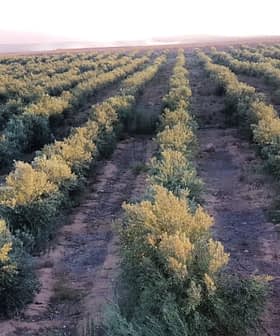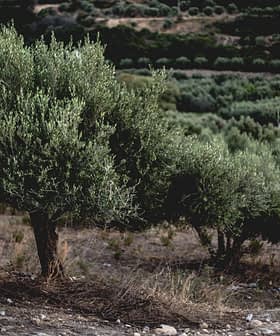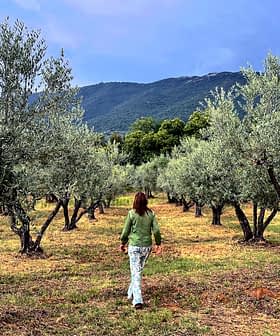The Trials and Triumphs of Organic Olive Farming in Andalusia
The fifth-generation family behind Luque Ecológico believes organic farming produces flavorful extra virgin olive oil, protects the environment and mitigates the impacts of drought.
 Juan Manuel Luque, Belen Luque and Rafael Gálvez (Photo: Luque Ecológico)
Juan Manuel Luque, Belen Luque and Rafael Gálvez (Photo: Luque Ecológico) Organic olive farming is the past, present and future at Luque Ecológico.
The fifth-generation family company has 300 hectares of organic olive groves at several different farms between Córdoba and Granada in the southern Spanish region of Andalusia.
We focus on an early harvest so that (the olives) have more intense aromas. The truth is that we don’t understand any other way to do it.
“Our company has been in organic farming since the late 1980s, so all of our projects have always been oriented towards quality and the environment,” said Rafael Gálvez, a formally trained agronomist and the company’s sales and quality manager.
Despite the many challenges associated with organic farming, the team behind Luque Ecológico sees sustainable agricultural and milling practices as the best way to achieve outstanding quality and mitigate the increasingly apparent impacts of climate change in southern Spain.
See Also:Producer Profiles“Organic farmers are always looking for a balance in the ecosystem,” Gálvez said. The company’s goal is for everything it does in its olive groves to benefit the trees and environment.
“We have had green cover plants for 30 years,” Gálvez said. “Pruning remains are also incorporated into the soil. The soil has to be alive. There has to be organic matter, and there have to be microorganisms that, in turn, make it easier for whatever nutrients there are to be transferred to the crop.”
He added, “We also try to ensure that the auxiliary fauna develops in the olive grove’s green cover plants because this is how we control pests.”
One of the main challenges for organic farmers, Gálvez cited, is the need to be constantly vigilant, aware of potential problems before they appear and prepared with technical solutions.
“It is vital to anticipate problems because then the solutions are not easy for organic farming,” he said. “The solutions are not immediate. It is not a matter of pressing a button or being able to apply a magical product. So it’s always about improving and maintaining balance.”
Along with preserving the natural environment, Gálvez believes that planting aromatic herbs and cover crops and improving soil health influences the organoleptic characteristics of the company’s extra virgin olive oil.
“We believe this may influence the organoleptic characteristics,” he said. “There are no scientific studies on this, but we think it does somehow affect these characteristics.”
The company’s efforts were rewarded for the ninth straight year at the 2024 NYIOOC World Olive Oil Competition. Luque Ecológico earned a Gold Award for its Take a Walk on the Organic Side brand, a medium Hojiblanca.
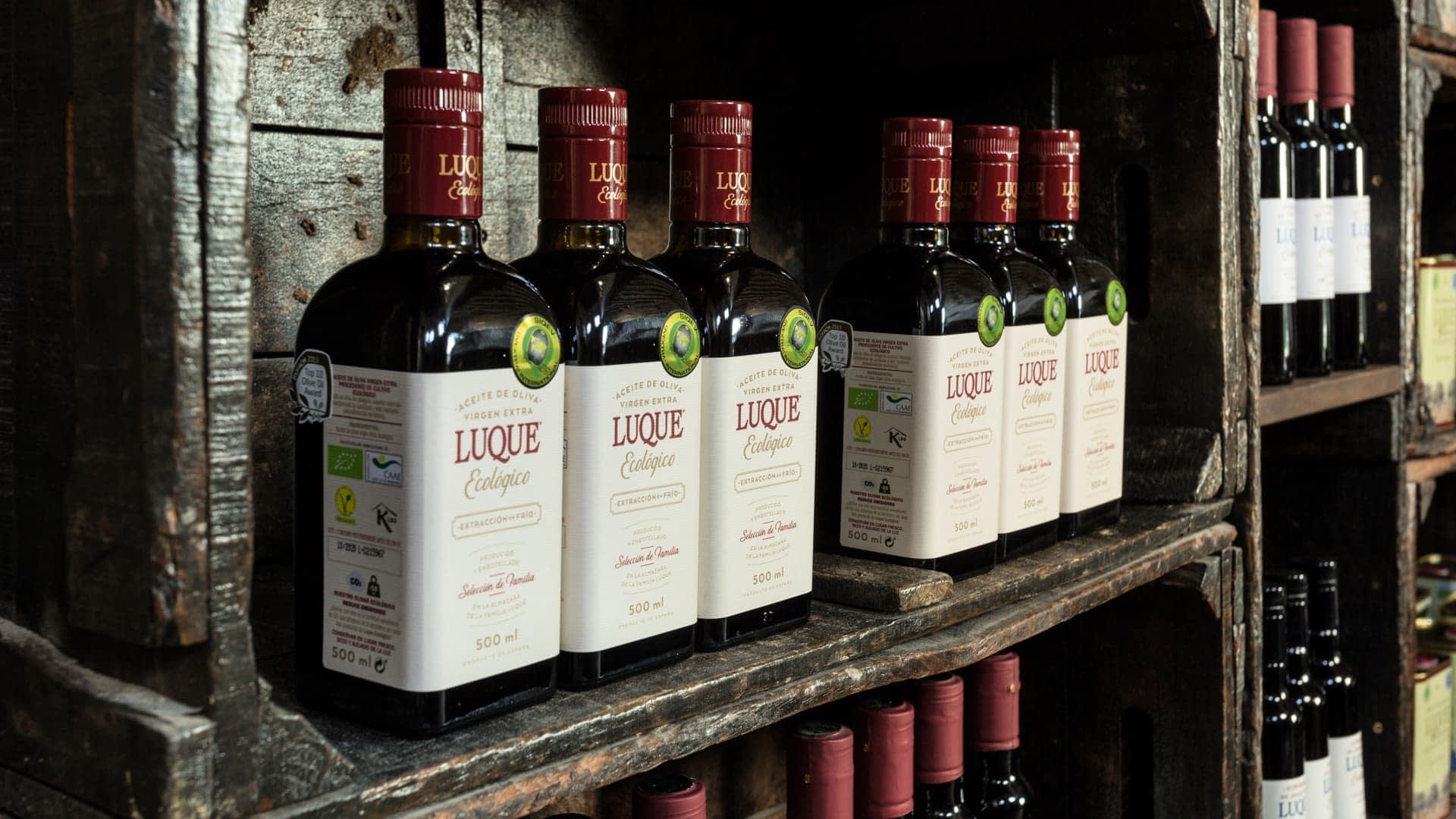
Luque Ecológico has been awarded at nine consecutive NYIOOC World Olive Oil Competitions. (Photo: Luque Ecológico)
“Take a Walk on the Organic Side is a low-input project grown in an olive grove with minimal feasible inputs,” Gálvez said.
Luque Ecológico’s olive groves are spread over three farms, each with native olive varieties and different cultivation methods. However, each project aims to achieve a high-quality, healthy, flavorful product.
“Of course, it is very important for us that all the products we put on the market are of the highest quality,” Gálvez said. “To achieve this, we have always been adapting new technologies and new ways of obtaining oil in our mill.”
“We changed the vertical centrifuges, which reduced water consumption by 50 percent,” he added. “That is good for the environment, but it is also good for the quality, so the oil is not washed out too much, and polyphenols and antioxidants are not lost.”
Along with organic practices, Luque Ecológico focuses on an early harvest to preserve the olives’ organoleptic qualities and ensure the maximum amount of polyphenols in the resulting olive oil.
“We focus on an early harvest so that they have more intense aromas,” Gálvez said. “The truth is that we don’t understand any other way to do it.”
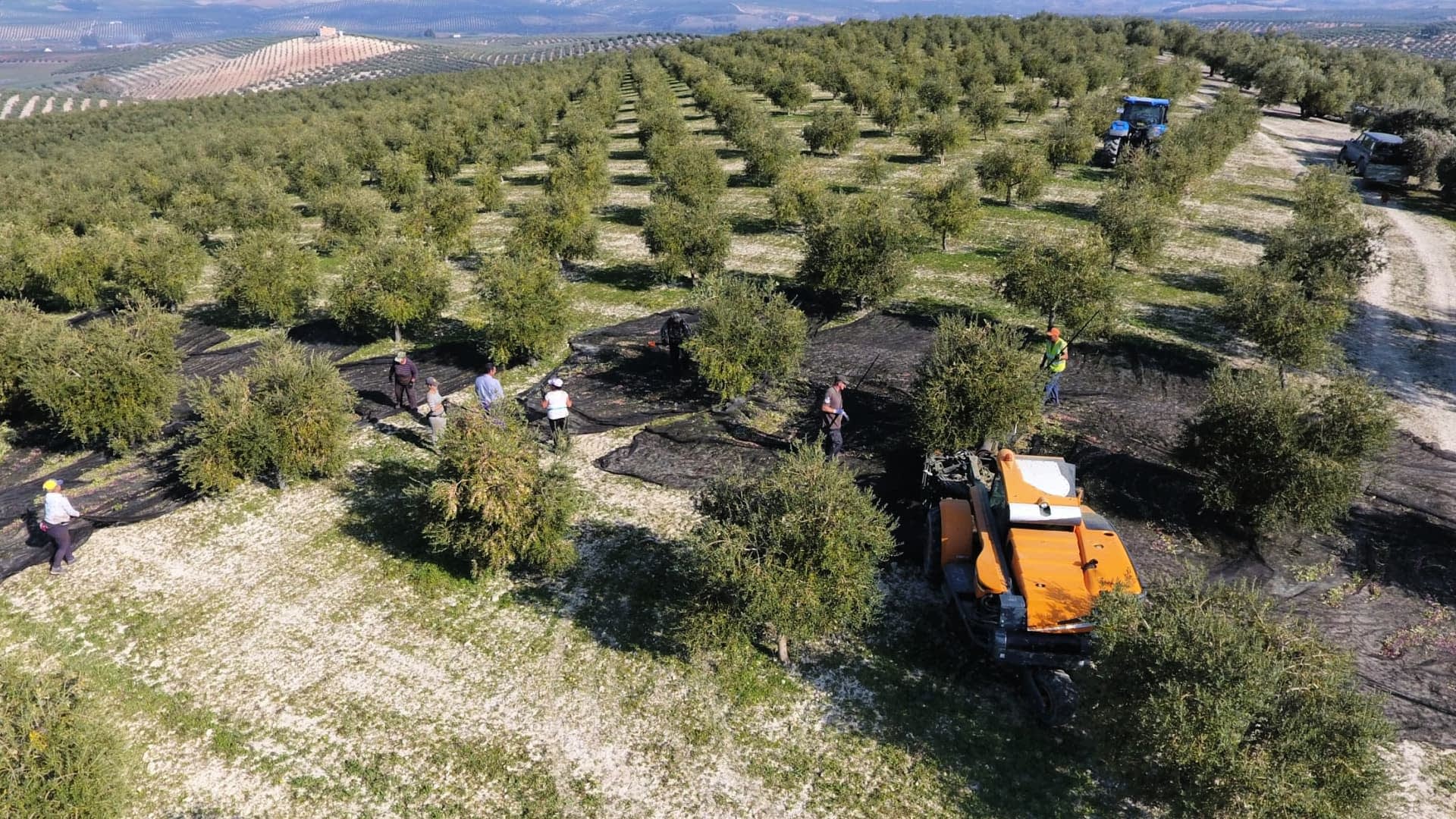
Among Luque Ecológico’s challenges is increasingly hot weather during the early harvest in October. (Photo: Luque Ecológico)
He added that the mindset surrounding quality has changed immensely over the five generations his family has produced olive oil.
“In the beginning, it was all about producing olive oil,” he said. “Nowadays, the goal is to sustainably produce quality extra virgin olive oil.”
The harvest has also become more efficient over the years. “Previously, many laborers harvested olives by hand, and mules hauled the olives to the mill,” Gálvez said. “Sometimes, the olives would stay in the field for a couple of days before they were taken to the mill.”
“Since then, everything has changed; the first generations were olive oil producers, and we are now extra virgin olive oil producers,” he added.
Gálvez said the mentality changed over the years from selling bulk olive oil to be bottled by other companies to producing a brand with attractive packaging and vertically integrating the entire process.
The company’s sales channels have also changed. While previous generations sold to local bottlers, Gálvez said Luque Ecológico now exports most of its organic extra virgin olive oil abroad.
“Due to our products’ organic origins, exports have been our main activity from the beginning,” he said. “The national market was very low, and it is still very low, so exports are our main focus for our product.”
Luque Ecológico now exports to more than 20 countries, including Australia, Canada, Japan, South Korea, the United Kingdom, the United States and other European countries.
Gálvez attributes increasing global demand for organic olive oil to improving awareness of extra virgin olive oil’s health benefits and greater knowledge of how to use it effectively in various cooking styles.
“The United States is one of the most interesting markets, and we are repositioning the product there,” he said. “[Meanwhile, Japan and South Korea] are among the countries that have been growing the most lately.”
While Spanish olive oil production rebounded to 846,800 tons in the 2023/24 crop year from the historic low of the previous harvest, Gálvez said Luque Ecológico had not experienced a production increase.
“We had two very tough years of drought, so we achieved around 50 percent of that of a normal harvest,” he said. However, not all varieties experienced the same decreases, with Picual suffering more than others.
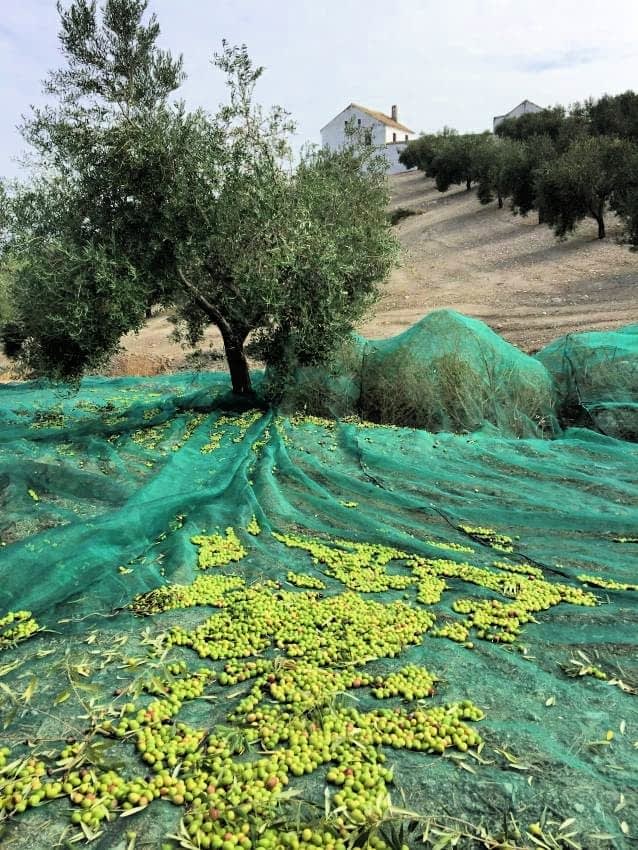
Luque Ecólogico grows several endemic varieties at different farms in Andalusia. (Photo: Luque Ecológico)
Along with drought, Gálvez said the company experienced extreme swings in temperature at the moment of flowering, further hampering production.
“Last year, we had three climatic conditions: drought, high temperature during flowering and low temperatures at the end of flowering,” he said. “We had a farm that experienced frost and lost all the flowers and leaves from the trees… It was incredible; we had never seen a situation quite like that.”
While Gálvez said there is not much producers can do to mitigate the impacts of extreme temperature swings, organic practices can help reduce the effects of the drought.
“When you have plant covers, more moisture is maintained in the soil,” he said. However, Gálvez added that if dryland groves do not receive the minimum amount of rain at certain moments of the year, including the moment of flowering, then the trees still suffer.
While the current situation in Andalusia promises a much stronger harvest in the 2024/25 crop year than in previous ones due to rain, extreme temperature fluctuations could hurt the trees.
“The coming harvest has high prospects,” Gálvez said. “It has rained a lot in the past month.”
Steady and consistent rainfall has allowed the soil to trap moisture and fill reservoirs and other bodies of water, which Luque Ecológico will rely on to irrigate some of its groves during the summer. Still, more rain is needed to ensure a successful harvest.
“Now, it has to continue raining in spring without high temperatures or frost,” Gálvez said. “Summer is still to come, and then it should rain again in the autumn. In other words, with this water, the entire crop cycle is not resolved.”





